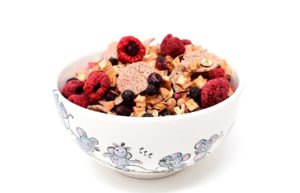As one of the essential nutrients, minerals have an influence on your children’s growth and development as well as their health.
Even though the body needs only a little amount of minerals, compared to carbohydrates for example, they have an important role in our body. Without minerals, carbohydrates, proteins, and the other nutrients can hardly carry out their functions. Let’s find out where the minerals come from.
Just as vitamins, the body needs minerals to run the process of children’s growth & development. They are also needed to take care of health, including shaping strong bones, producing hormones and maintaining heart pulses.
There are some kinds of minerals required in more than 100 mg per day like calcium. Though, the body only needs a little amount of zinc (less than 100 mg per day), for example.
The body needs the minerals everyday. Among so many important minerals for children, let’s see some of them and how they give benefits to our children.
1. Calcium (Ca)
Benefits:
– good for teeth and bones development
– avoids children from osteoporosis in the future
– controls blood coagulation and muscle contraction
Sources: milk and its processed products, like cheese, butter, yoghurt, and ice cream. Calcium is also available in soy bean and salmon.
2. Iron (Fe)
Benefits:
– helps forming hemoglobin (the color substance in red blood which functions in transferring oxygen from the lung to the whole body)
– important for energy forming and enhancing body immune system
Sources: beef, egg yolk, fruits, bread
3. Magnesium (Mg)
Benefits:
– has an important role in the process of energy metabolism
– controls the vital function of the body, like heart pulse, muscle relaxation, and avoids blood coagulation
– forms bones and teeth together with calcium
Sources: nuts, avocado, meat, milk, chocolate
4. Potassium/Kalium (K)
Benefits:
– produces energy
– controls heart pulse
Sources: banana, avocado, vegetables, cereals
5. Phosphor (P)
Benefits:
– with calcium, phosphor avoids bones and teeth calcification
– controls energy transfer in metabolism
Sources: beef, fish and poultry, egg, cheese, milk, and nuts
Our body, just the same as our children’s, needs a sufficient amount of minerals everyday. It requires a different quantity from every mineral.
For instance, your toddler has to consume at least 500 mg calcium per day, while he or she just needs about 75-100 mg of magnesium per day.
You really need not to file and calculate each mineral whenever you feed your children. How to tell if the children get the sufficient amount of the minerals then?
No need to be confused. The key is in the feeding pattern. Arrange your children’s menu so that they get various kinds of food, which are rich in numerous important nutrients, by giving them alternately.
There’s no food contains complete nutrients. However, one kind of food can contain more than one essential substance. For example, cheese is a great source of calcium and phosphor, besides protein and fat. Though, it doesn’t contain potassium/kalium.
Therefore, as long as your children obtain a great variety of nutritional food in a balanced quantity, just believe that the minerals needed by their body are accomplished.






